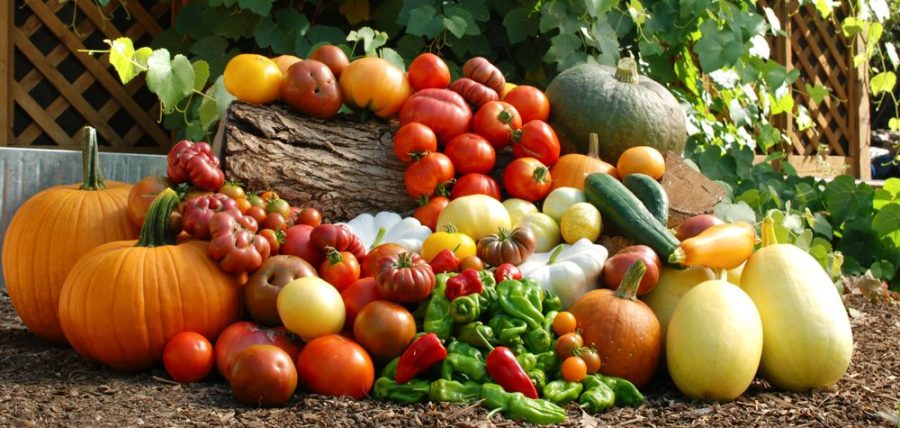Building a Sustainable Future: Gardening and Composting
March 16, 2023
Building a sustainable lifestyle is not only important for your own well-being, but also for the earth and your wallet! A part of this is gardening and composting. The most effective way to make a difference in your life is to start a home garden, big or small!
Before you get started, it is important to note the environmental aspects of gardening so you can get the best produce out of the season! Before the spring season starts you need to plan, plan, plan. The way you can do this is by researching the types of food that grow well in your region, the frost dates of your area, and what you can plant together (companion planting) that will make both plants prosper. The frost dates help you to determine when to start your planting, so your crops do not die. A few other things to consider is pollination (planting flowers near your produce crops helps with this) and what plants you can start inside ahead of the spring season. Of course, it is essential that you plant what you will enjoy, and if your research leads to the outcome of a particular plant not growing well under the conditions you live in, there is always a delicious alternative!
During the spring planting season, it is imperative that you stay on top of your garden. The best way you can achieve this is by constantly assessing your garden so you are aware if you have any problems including blight and infestation. If you do discover these, then it is crucial that you solve the problem quickly so you can get the most out of your garden. Another way to stay on top of your garden is by harvesting and preserving it on a regular basis. I know in my house it seems like we are always out in the garden, canning or drying food. While this seems like a lot, it is necessary for successful garden production and planning for the future.
As the season comes to a close, your main goal will be to assess what did well and what was inefficient or took too much time for little reward. While you contemplate your harvest, you want to make sure your garden is ready for the next season! To do this you must clean out your garden. Do not worry; the remaining plants will be used for your future gardening endeavors! In our household, whatever we do not give to our chickens, we use for compost. Compost is a useful “ingredient” in your soil. It returns needed nutrients to the soil so your garden and its plants can thrive! A quick tip on composting: maintain a four Carbon to one Nitrogen ratio. Carbon items are usually brown (paper, leaves, and twigs) and Nitrogen items are usually green (kitchen scraps, no matter the color). This is especially important if you use worms to help compost (sounds weird, but it’s very effective). The final step in your gardening season is to put your garden to bed for the winter! This entails finishing cleaning it out, covering it up to prevent weed growth, and even adding leaves to start the composting process.
Although this seems like a lot to comprehend, you can start slow and learn as you go. In the end, it will be beneficial for yourself and your family to make a sustainable, healthy future!


